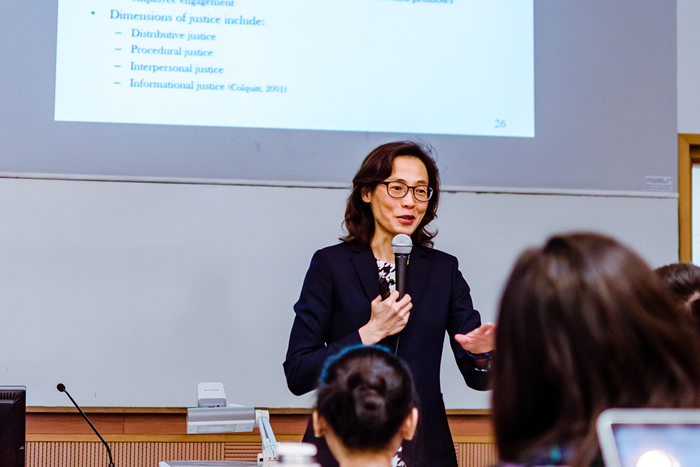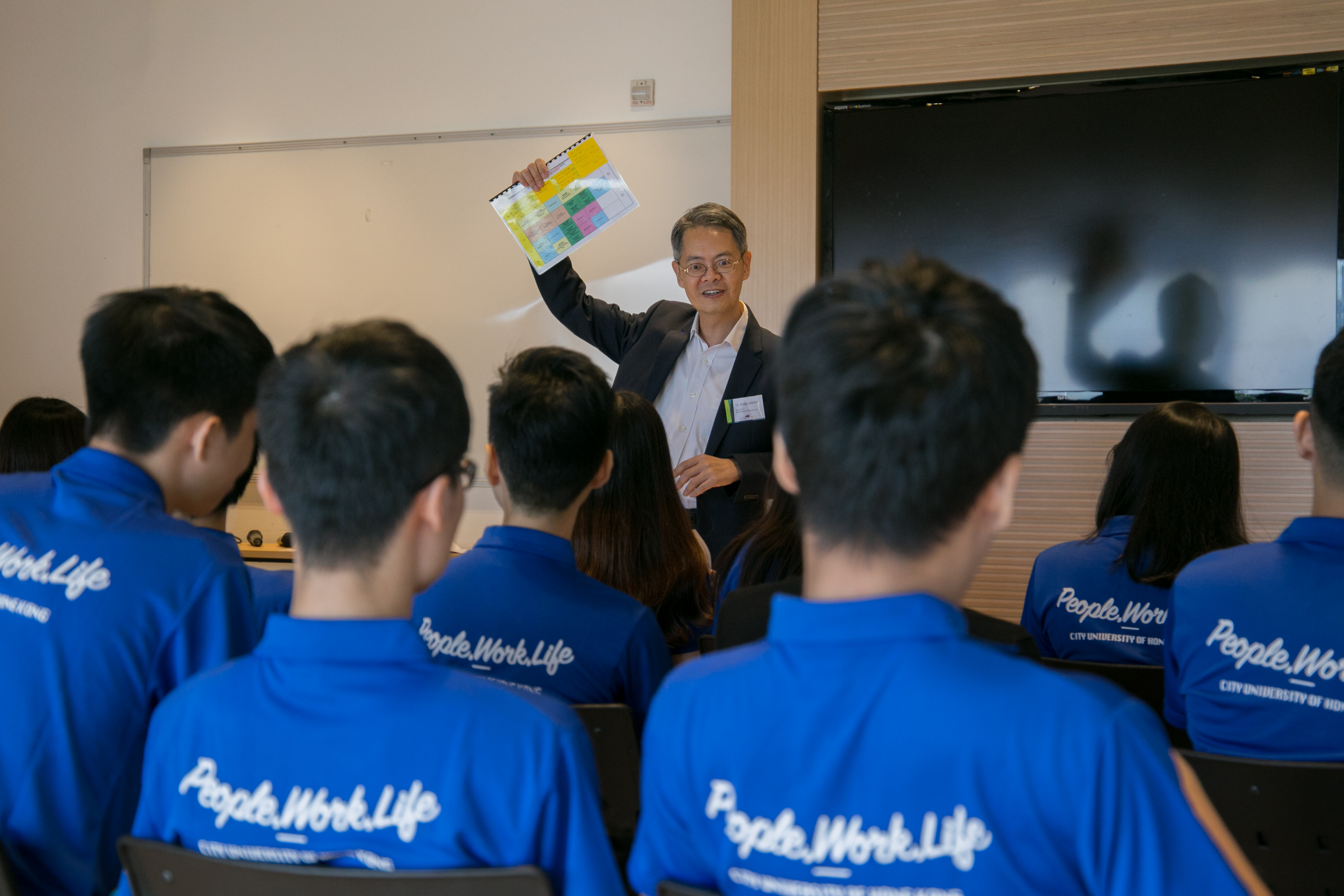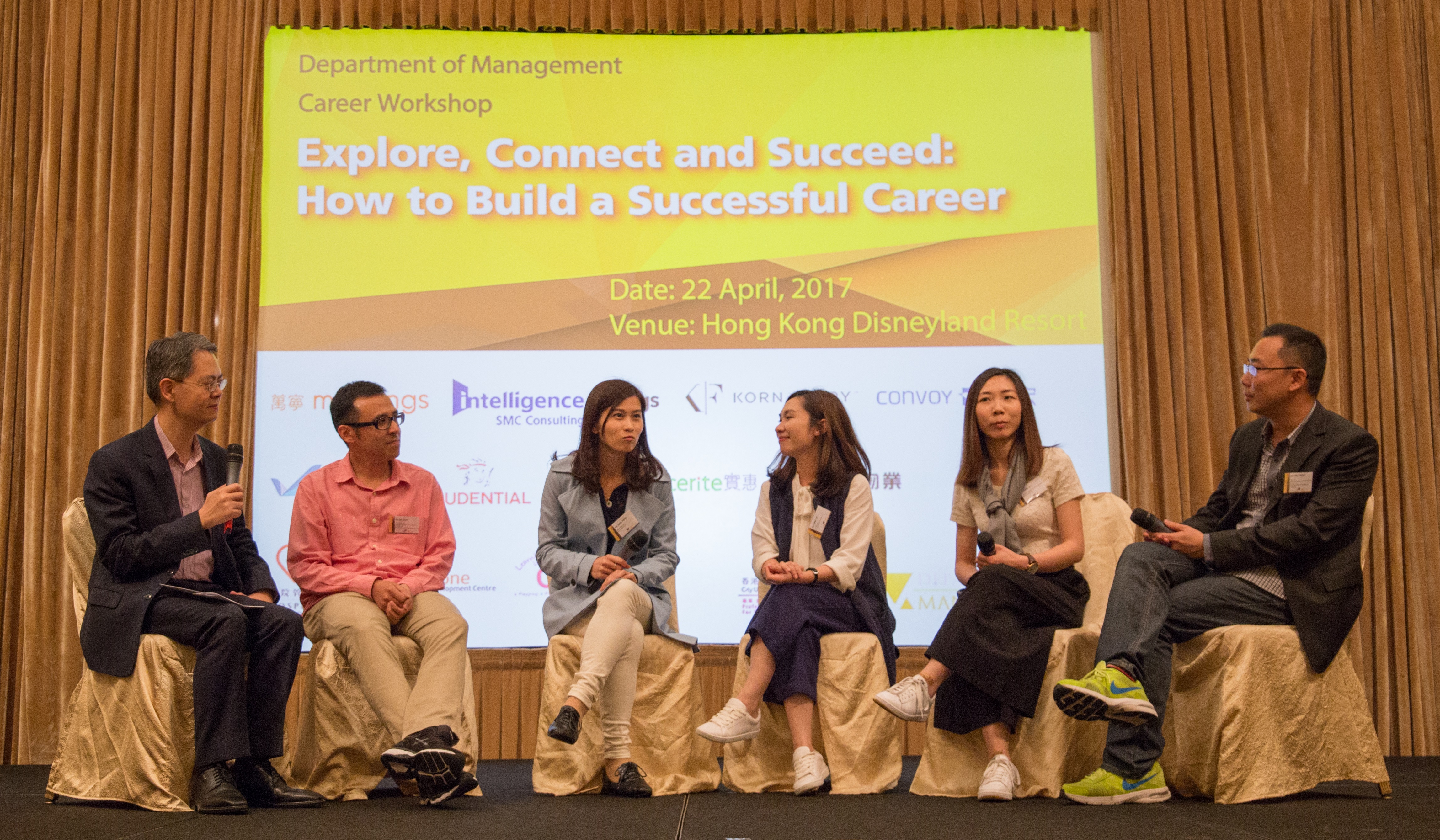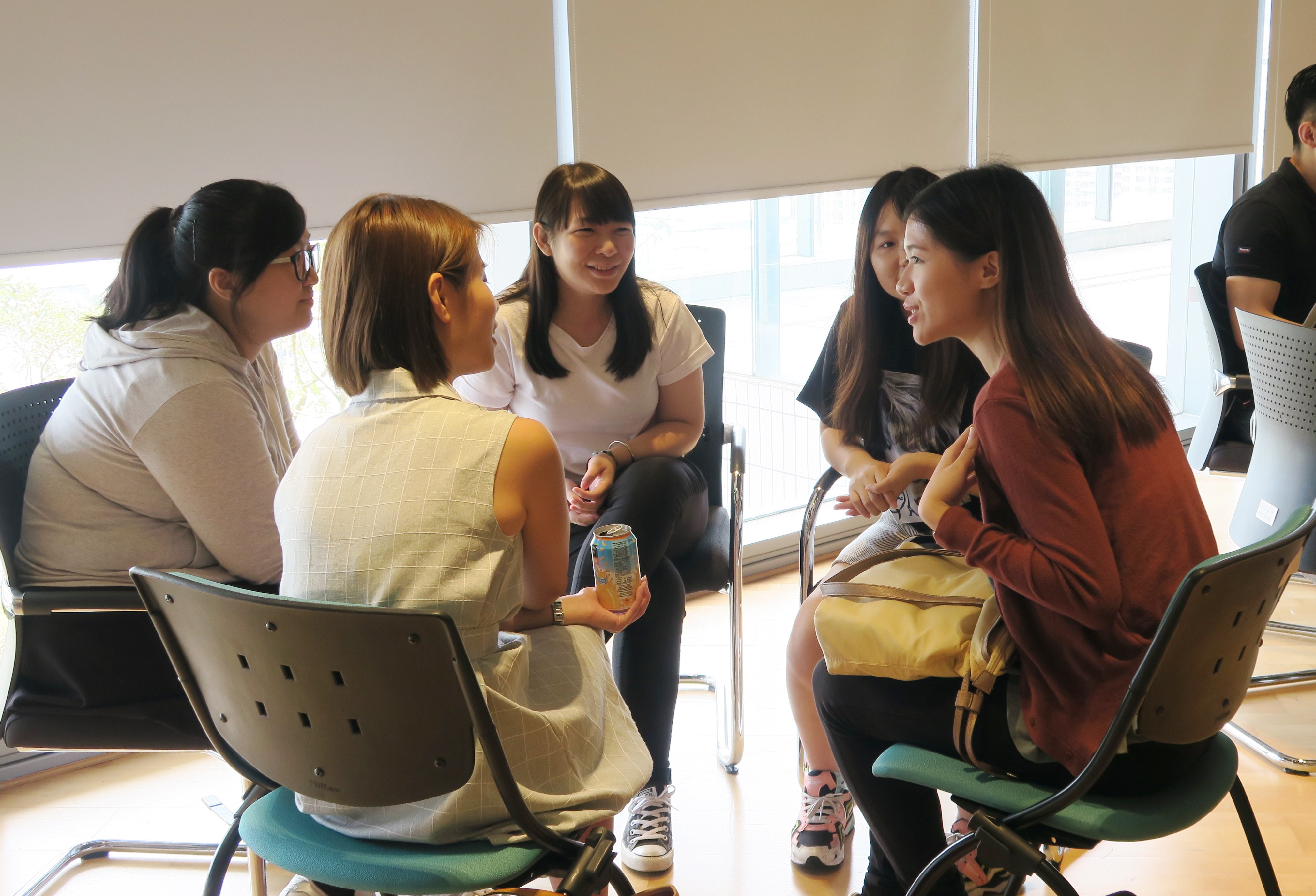Guided by the motto "People, Work, & Life", the Department of Management has launched a new BBA Major in Management, as well as a Career Mentoring Programme. Both are proving to be much in demand, as a timely survey of College alumni shows that our students will need to recalibrate their skills set to remain competitive as they enter the job market.
Which skills do employers most look for when they interview graduates entering the workforce? In a data-driven world you might think computing and technical skills are the top priority. But a 2016 survey of more than 500 alumni in the College of Business reveals that the old-fashioned ability to communicate face-to-face is one of the most highly rated skills. Interpersonal skills, verbal communication, problem-solving skills, and work attitude are the top contributing factors to gain career advancement, noted by alumni with 3 to 10 years of work experience. The use of computer applications, quantitative skills, or course content from university days are seen as less significant.
Soft skills in demand
More experienced alumni - those with more than 10 years of work experience - rate work attitude and communication skills as the most important selection criteria when interviewing fresh graduates for a competitive position. Collectively, these findings suggest that across all CB departments, more consideration needs to be given to developing peopleoriented skills, that is, "soft skills" in our students. A department that can provide assistance to others in CB in nurturing the people-orientation of all graduates is the Department of Management (MGT).
People, Work, & Life
"People, Work, & Life" has been the motto of MGT since 2013. Aiming at equipping students with people management skills, MGT has striven to develop new co-curricular activities and to redesign its undergraduate programme curriculum. In response to the changing learning needs of Gen Y and iGen1 undergraduates, MGT has taken two new initiatives to nurture the soft skills of our undergraduates; provision of a Career Mentoring Programme to develop students' interpersonal and networking skills, and a redesign and restructuring of the undergraduate curriculum.
Career Mentoring
The Career Mentoring Programme is based on our belief that face-to-face time and the human touch are indispensable for equipping our undergraduates to perform people-oriented jobs in human resources management or international management. In the academic year 2016/17, we launched a Career Mentoring Programme for our students in Year 3 and Year 4. About 30 senior undergraduates were led by career mentors in small groups. Rather than senior executives who are less "in-touch" with and may be perceived to be intimidating by some of our undergraduate students, these career mentors are middle-level managers with several years of working experience.
Favourable feedback was received from the students joining the programme. Students often described their career mentors as their friends who were willing to share career insights with them despite their busy schedules. A reason for this quick bonding is that these mentors are MGT alumni who understand the university and the curriculum well. Many students treasured the realistic preview of the work environment, the practical advice, and the encouragement given by their alumni career mentors. An important factor contributing to the effectiveness of the programme is that the guidance was provided by older members of Gen Y to its younger members.
Thus, students were open and willing to accept the structured advice (both positive and negative) given to them because they felt that they were being guided by older peers rather than somebody in their parent's generation.
Communication between the career mentors and the teaching staff in charge of the programme was often direct and immediate because of the trust relationship built up over their years of study in MGT. A programme bonus is that it enhances the sense of belonging of our alumni to MGT and to CityU. Many career mentors recall fond memories of the "good old days" at CityU when they interacted with the students in career mentoring, and the majority are willing to continue to serve in 2017/18. In this academic year, the Career Mentoring Programme has an 80% increase in enrollment serving close to 50 students
Networking
Research has shown that the ability to network socially is important for career development. This is echoed by the alumni survey respondents. Apart from overseas exchange and study tours, alumni believe that the career workshops they attended were important to their current jobs. In April 2016, MGT organized a large-scale career workshop at a conference centre off-campus for the first time. This was a one-day career development workshop in which executives from well-known organizations were invited to share their insights around a designated theme. Last year's theme was "How to be successful in multinational firms", and the theme for this year's workshop was "Explore, Connect, and Succeed: How to build a successful career". Students were able not only to listen to the insights of the executives, but also to interact with the speakers and ask questions during or right after the talk. More importantly, students could practice their social networking skills with the guest speakers and alumni over tea breaks or during the luncheon. Of the 130 students attending the full-day career workshop in 2017, 90% of them agreed that the workshop was beneficial for their career development.
Curriculum redesign
The second major initiative is the redesign and restructuring of the MGT undergraduate curriculum over the last two years, designed to meet the changing learning needs of our undergraduates. After several rounds of discussion and consultations with colleagues, we have consolidated our two majors - Human Resources Management & International Business - into one major, namely Management. In Year 2, students will be able to choose to further stream their study into either human resources management or international business. We believe young undergraduates will be more likely to make a wise and informed decision on their specialized stream of study after some exploration in the first year at CityU. To provide opportunities for undergraduates to sharpen their people management skills, almost all courses offered by MGT require students to work in teams to make a presentation and / or write a report. More specifically, our undergraduates in MGT have the privilege to take courses, such as leadership, negotiation, work behavior, entrepreneurship, case analyses, business plan development and presentation. All these courses will no doubt facilitate improvement of the interpersonal, communication, and decision-making skills of our future graduates so that they can effectively develop their careers. The JUPAS admission statistics in 2016 and 2017 show that the new BBA in Management is one of the top three most sought after and competitive undergraduate programmes in CB with over 3,000 applicants competing for about 60 places. This provides preliminary evidence that the programme restructuring is meeting the needs of the next generation of students in Hong Kong.
New-era people management
All in all, MGT recognizes that nurturing people management skills in undergraduates who are already digitally literate, is more critical to their future success than greater technical proficiency. The continuous development of co-curricular activities and the newly redesigned undergraduate curriculum have incorporated pedagogical features designed to nurture young undergraduates' people management skills while engaging them in structured learning from experienced alumni peers and business practitioners. MGT has thus striven, particularly in the last couple of years, to deliver curriculum, student activities, and teaching resources to ensure our young graduates understand the essence of people management - the interconnections among people, work, and life. This is expertise that MGT can share with other CB departments to enhance the potential for success of all CB students.




